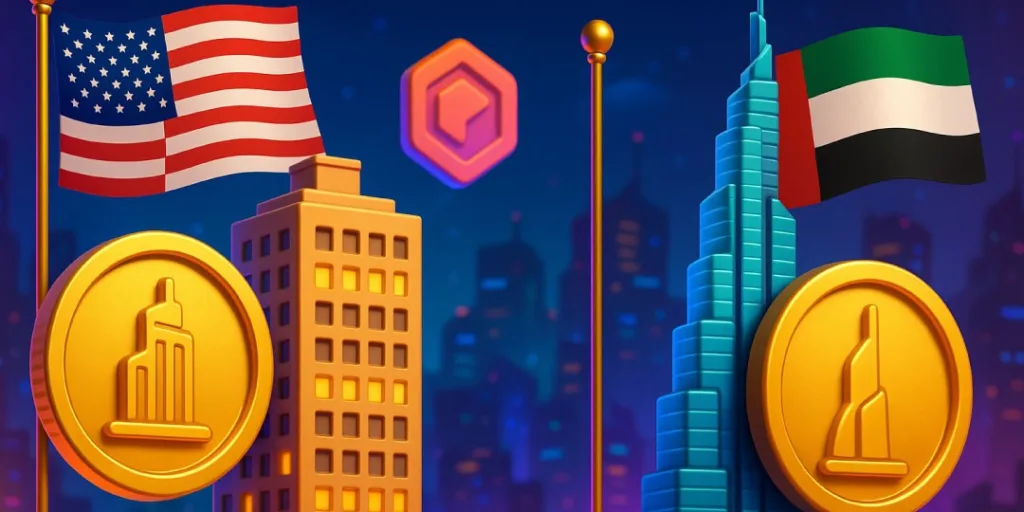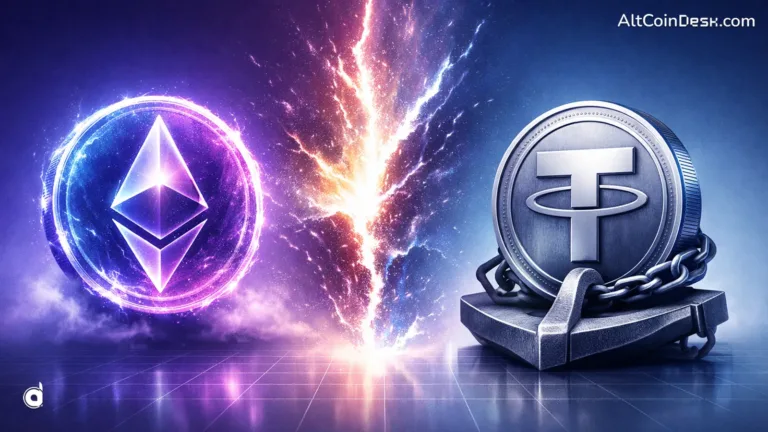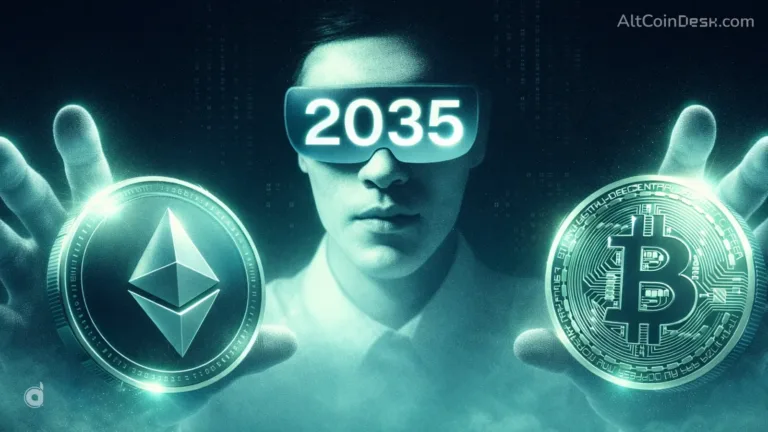Grabbing coffee when a nearby conversation catches your ear, someone’s thrilled about owning part of an apartment building for only $50. Your curiosity spikes, and you lean in closer. It sounds almost too good, but this isn’t fantasy. It’s tokenized real estate: a radical shift making property investment accessible. Forget magic wands; here’s the real, step-by-step story of how it actually works, explained plainly.
What does tokenized real estate mean?
Think of a building. Instead of one person owning the whole thing, we put it into a special box called a Special-Purpose Vehicle (SPV), usually an LLC (a type of company). This SPV then creates digital tokens on a public blockchain (like a super-secure, shared digital ledger you can check anytime).
- Each token is like a tiny legal share of that SPV box. If you own tokens, you own a piece of the building’s economic rights. This means:
- A share of the rent money it makes.
- A share of the building increases in value over time.
- A share of the money if the building is ever sold.
- Smart contracts (like little computer programs on the blockchain) handle important jobs automatically:
- Checking who can invest (KYC/AML – Know Your Customer/Anti-Money Laundering).
- Sending out rent payments (dividends) to token holders.
- Letting token holders vote on big decisions, like whether to sell the building or get a new loan (refinance).
The Result? You can buy or sell very small slices of a real building, sometimes for as little as $50 or $2000, without needing expensive lawyers or waiting weeks for paperwork. It’s fast!
Why the USA and UAE lead in tokenized real estate
Not all countries are moving at the same speed. Right now, two places are out front:
- The United States:
- Why? They have clear rules for crowdfunding investments (called Reg D, Reg A, and Reg CF). Lots of retail investors are interested, and there’s a big market for buying/selling cryptocurrencies.
- Examples:
- Lofty (uses the Algorand blockchain and pays rent daily).
- RealT (uses Ethereum).
- The United Arab Emirates (UAE):
- Why? The government likes crypto, there’s zero personal income tax, and Dubai’s Land Department has a special testing area (“sandbox”) for property tokenization, watched over by their regulator (VARA).
- Examples:
- Prypco Mint (sold a villa’s tokens in just 5 minutes! Minimum investment ~$540).
- DAMAC & MANTRA (planning a huge $1 billion program for tokenizing real-world assets, starting late 2025).
How to invest today
So, how do you actually buy a piece of tokenized real estate?
- Pick a Regulated Platform:
- USA: Look at Lofty, RedSwan, Arrived. Make sure they follow the rules (Reg D or Reg A).
- UAE: Prypco Mint (has a VARA license); soon, MANTRA listings.
- Complete KYC / Accreditation:
- USA: For most deals under Reg D, you usually need to be an “accredited investor” (meaning you earn over $200,000 per year or have over $1 million in net worth, not counting your home). Platforms will be checked.
- UAE: Platforms currently only accept investors who reside in the UAE, but plan to include investors from around the world soon.
- Fund Your Wallet: Put money into the platform using methods they accept, like a bank wire (USD), or cryptocurrencies like USDC, Algorand (ALGO), or Ethereum (ETH).
- Buy Tokens: Choose a property and buy tokens!
- Minimums: As low as $50 (Lofty & RealT) or around $540 (Prypco).
- Earn & Monitor:
- Rent lands in your digital wallet—daily (Lofty) or quarterly (Prypco).
- Vote on important things like repairs, setting a sale price, or refinancing when proposals pop up on the blockchain.
- Exit (Sell Your Piece):
- Sell your tokens to another investor on the platform’s secondary market (like Lofty’s internal system or tZERO for AspenCoin).
- OR, wait until the token holders vote to sell the entire building, and you get your share of the sale money.

Money talk: What can you earn?
Let’s talk returns, fees, and how easy it is to get your money out (liquidity):
- Lofty (USA):
- Cash Flow (Rent): Estimated 0-12% per year.
- Appreciation (Value Growth): Estimated 0-15% per year. The estimated value is updated monthly.
- Liquidity: You can usually sell instantly to another investor on their system, but they charge a 3% fee.
- Prypco (Dubai):
- Cash Flow: Targets 6-10% gross yield (similar to average Dubai rents).
- Appreciation: Dubai property prices have jumped 147% in the last 5 years!
- Liquidity: Their own market for selling tokens is planned for late 2024.
- RealT (USA):
- Cash Flow: Advertised 8-12%.
- Liquidity: Very limited; people sometimes trade directly with each other (Over-The-Counter or “OTC”) on Discord.
Reality Check for tokenized real estate: Your actual returns depend heavily on the building’s location, if it has a mortgage (leverage), and how often it’s rented (vacancy rates). Always, always read the detailed property information (“property packet”) and the independent valuation report!
Taxes & Rules
In tokenized real estate, taxes are different depending on where you live:
- Rental Income:
- USA: Treated like regular income. If you earn a lot, add 3.8% Net Investment Income Tax (NIIT).
- UAE: No personal income tax! (A big advantage).
- Selling Tokens (Capital Gains):
- USA: Normal capital gains rules apply (short-term vs. long-term). Tokens are likely considered “securities,” so “wash sale” rules (quickly selling and rebuying to claim a loss) don’t apply.
- UAE: No capital gains tax for individuals! If you hold via a UAE company, there’s a 9% corporate tax only on profits over AED 375k.
- Withholding Tax (For Non-Locals):
- USA: Non-US investors might have to pay up to 15% tax withheld on gains from US property, even tokenized (FIRPTA rules).
- UAE: Foreign investors can usually take profits out freely. A 4% Dubai Land Department (DLD) fee only applies when the property deed is first tokenized.
- Estate Planning (Passing it On):
- USA: Tokens pass to heirs like stocks or bonds. Using a trust or LLC might be smart.
- UAE: Sharia law can apply to property. Holding tokens via a company in an offshore free zone often avoids this for expats.
(Remember: This is NOT personalized tax advice! Talk to a professional in your country.)
Also Read: U.S. and UAE steer altcoin, stablecoin, and memecoin surge in recent crypto market trends
Risks to keep in mind
In tokenized real estate, it’s not all sunshine and rent checks. Be aware of the clouds:
- Tech Glitches/Hacks: Smart contracts can have bugs. Exchanges can be hacked. Best practice: Hold your tokens in your own secure wallet (“self-custody”).
- Rule Changes: Regulators (like the SEC in the US or VARA in the UAE) can change rules or shut things down. Enforcement is increasing.
- Platform Problems: The company running the platform might mess up or even do something wrong (like the lawsuits facing RealT). Do your homework (due diligence)!
- Fees: Watch out for costs! Examples: 3% trading fees (Lofty), sometimes over 5% price difference (“spread”) when reselling in the UAE.
- Market Downturns: Property values and rents can fall. Token prices will drop too—they aren’t protected from economic cycles.
How much money do you need for tokenized real estate?
The starting point varies in tokenized real estate:
- USA Reg D Deal (e.g., tZERO, AspenCoin): Minimum $1,000 – $10,000. Paperwork: Accredited investor proof + subscription agreement.
- USA Crowd Platform (e.g., Lofty): The Minimum is just $50. Paperwork: KYC ID check + W-9 form (or W-8BEN for non-US residents).
- Dubai Sandbox Deal (e.g., Prypco): Minimum AED 2,000 (~$540). Paperwork: Emirates ID or Passport + VARA risk disclosure form.
Tips from the field: How to play it smart
If you decide to dive into tokenized real estate, here’s some friendly advice:
- Start Tiny: Buy one or two tokens first. Learn how the platform works and understand all the fees.
- Spread Your Bets (Diversify): Don’t put all your money on one platform, one building, or one landlord. Invest across different cities and companies.
- Check the Voters: See if token holders are active and voting. If no one votes (“sleepy community”), it’s riskier if big decisions need to be made.
- Reinvest Wisely (Taxes): In the US, you can’t yet do a “1031 exchange” (deferring tax) with tokens like you can with whole properties. Instead, use your rent payments to buy more tokens to grow your investment.
- Lock Down Security: Treat your tokens like cash! Use a hardware wallet (like a USB for crypto). If you “stake” tokens to vote, use extra security (“multisig”) if possible.
- Have an Exit Plan: Decide when you want to sell. Set a target price or return goal. Sell when lots of people are trading (e.g., Friday mornings ET on Lofty, or during Prypco‘s planned quarterly windows).
The big picture: Key takeaway
Tokenized real estate turns physical bricks and mortar into digital bits. It opens doors:
- Faster Entry: Invest quickly online.
- Lower Minimums: Start with just $50 or $500.
- 24/7 Markets: Buy and sell tokens anytime.
But… this only works well for investors who respect the fine print. You must:
- Learn the Rules: Understand regulations in your country and the property’s location.
- Verify the Issuer: Research the platform and the individuals behind it.
- Size Wisely: Only invest amounts where losing it wouldn’t ruin you. A hack, a software bug, or a few months of no rent shouldn’t destroy your savings.
The story ends with the wisest advice: Stay curious, stay diversified, and keep your private keys very, very safe. The world of tokenized real estate is exciting, but tread carefully!





